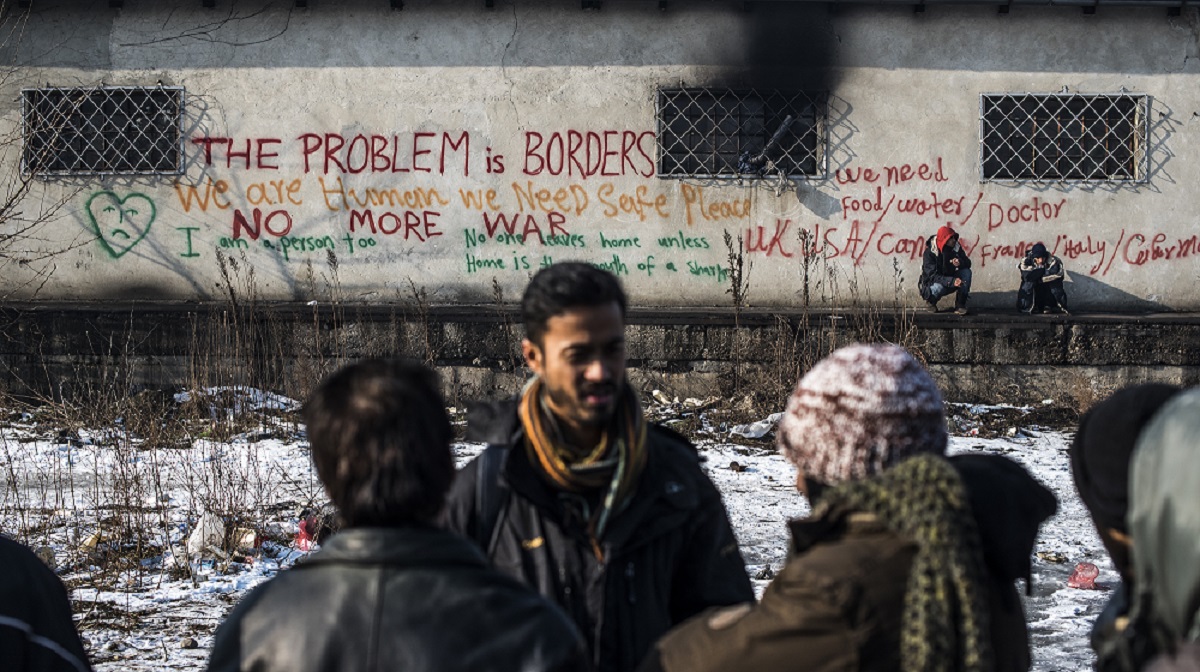Every year on the 20th of June, World Refugee Day is used to recognise and commemorate the strength, courage and perseverance of refugees. It is important to recognise the difficulties that refugees face, and work towards a world where all refugees receive an education, have somewhere safe to live alongside accessibility to work so they can support their families. However, the term refugee is used to categorise people on the move and with that comes a distinct definition of the term ‘migrant’.
During the Mediterranean mixed migration crisis, the categories of ‘refugee’ and ‘migrant’ were widely used to differentiate between those on the move, and the legitimacy of their claim to international assistance and protection. Refugees have been seen as legitimate recipients of assistance while migrants have been portrayed as people making a choice to move and unworthy of assistance.
The United Nations High Commission for Refugees (UNHCR) believes that the two categories should remain distinct, and that conflating refugees and migrants could have serious consequences for the specific legal protections refugees require.They differentiate between refugees and migrants in the following way:
“Refugees are defined as people fleeing persecution and conflict in their country of origin and for whom return would potentially have deadly consequences. Conversely, migrants choose to move not because of a direct threat of persecution or death, but mainly to improve their lives by finding work, or in some cases for education, family reunion, or other reasons and would face no impediment to safely return home.”[1]
The difficulty with such definitions
Such definitions do not take into account the complex political, social and economic drivers that lead people to move. These ‘one size fits all’ definitions also don’t work practically in the real world; it is not easy to categorise someone as simply a refugee or a migrant, particularly in the context of Mediterranean mixed migration. People with different motivations travel together, individuals may change status, or even in some circumstances fit in more than one category at once.
This is partly because although the UNHCR can define what a refugee is, the interpretation and practical application of this largely takes place at a national level where changes in policy and law can include some people in the category of refugee while excluding others. People may not be categorised as refugees until they have reached a place of safety, claimed asylum and gone through an often-lengthy process to receive refugee status.
Descriptions in the media, of ‘swarms’ or ‘hordes’ of migrants or ‘real refugees’ have also contributed to the use of these categories to discriminate and diminish those who are only seen as migrants instead of refugees. Barry Malone of Al Jazeera argued that the umbrella term of migrant no longer works for the situation in the Mediterranean as it “has evolved from its dictionary definitions into a tool that dehumanises and distances, a blunt pejorative.”[2]
Choose your words carefully
And, this is why the Migration Emergency Response Fund (MERF) does not take these categorisations into account. The MERF is a rapid-response, context specific, contingency fund run by the Start Network to respond to changes in the context, spikes, ongoing gaps and acute needs related to migration along the central Mediterranean route. An alert is raised by one of the Start Network members and humanitarian experts decide on whether it fits the criteria of the fund. If it fits and is funded, member agencies submit a proposal to respond to the crisis. Decisions on which proposals to fund are made in country - as close to affected populations as possible - by people who understand the context. Agencies do not consider definitions of ‘migrant’ or ‘refugee’, instead they design programmes based on need ensuring vulnerable people are safe and protected.
Standing with refugees on World Refugee Day, and every day is important and you should follow the progress UN Member States are making towards a global compact on refugees. But the categorisation of refugee and migrant as dichotomous is incorrect and has led to the vilification of migrants in the Mediterranean. The reasons for the movement of people are multifaceted and complex and the language we use today and going forward is more important than it ever has been, so please choose your words carefully because how you use these terms, does matter.
Read more about the Migration Emergency Response Fund (MERF) here.
[1] http://www.unhcr.org/uk/news/latest/2016/7/55df0e556/unhcr-viewpoint-re…
[2] https://www.aljazeera.com/blogs/editors-blog/2015/08/al-jazeera-mediter…

